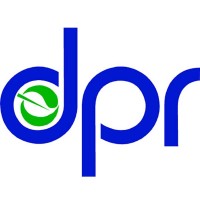News and Announcements
Learn more about what is happening at the Department of Pesticide Regulation (DPR).
Click the “Search” button to view all resources available, or refine your search through the filtering options.
April 8, 2025 | Announcement
April 4, 2025 | Press Release
March 24, 2025 | Press Release
March 13, 2025 | Press Release
March 10, 2025 | Blog
February 25, 2025 | Press Release
February 11, 2025 | Announcement
February 7, 2025 | Announcement
December 30, 2024 | Press Release
December 18, 2024 | Press Release
December 6, 2024 | Press Release
December 2, 2024 | Blog
December 1, 2024 | Strategic Plan and Progress
November 14, 2024 | Press Release
October 14, 2024 | Press Release
October 1, 2024 | Press Release
September 24, 2024 | Press Release
September 4, 2024 | Press Release
August 16, 2024 | Press Release
August 14, 2024 | Press Release
July 18, 2024 | Press Release
July 2, 2024 | Press Release
May 16, 2024 | Press Release
February 27, 2024 | Press Release
December 13, 2023 | Press Release
December 1, 2023 | Strategic Plan and Progress
November 2, 2023 | Press Release
October 13, 2023 | Press Release
September 28, 2023 | Press Release
September 18, 2023 | Press Release
September 14, 2023 | Press Release
September 6, 2023 | Press Release
August 24, 2023 | Press Release
August 15, 2023 | Press Release
August 4, 2023 | Press Release
May 18, 2023 | Press Release
May 16, 2023 | Press Release
April 27, 2023 | Press Release
February 21, 2023 | Press Release
February 14, 2023 | Press Release
February 7, 2023 | Press Release
January 26, 2023 | Press Release
November 15, 2022 | Press Release
November 15, 2022 | Press Release
October 7, 2022 | Press Release
September 28, 2022 | Press Release
September 19, 2022 | Press Release
August 16, 2022 | Press Release
August 11, 2022 | Press Release
July 14, 2022 | Press Release
July 7, 2022 | Press Release
May 25, 2022 | Press Release
May 3, 2022 | Press Release
April 21, 2022 | Press Release
April 5, 2022 | Press Release
March 14, 2022 | Press Release
March 10, 2022 | Press Release
March 8, 2022 | Press Release
February 25, 2022 | Press Release
February 22, 2022 | Press Release
February 11, 2022 | Press Release
February 3, 2022 | Press Release
December 3, 2021 | Press Release
November 4, 2021 | Press Release
October 27, 2021 | Press Release
September 2, 2021 | Press Release
August 31, 2021 | Press Release
August 25, 2021 | Press Release
July 30, 2021 | Press Release
June 16, 2021 | Press Release
April 29, 2021 | Press Release
March 10, 2021 | Press Release
October 30, 2020 | Press Release
September 24, 2020 | Press Release
August 26, 2020 | Press Release
August 24, 2020 | Press Release
July 16, 2020 | Press Release
May 7, 2020 | Press Release
March 4, 2020 | Press Release
October 16, 2019 | Press Release
October 9, 2019 | Press Release
August 8, 2019 | Press Release
July 16, 2019 | Press Release
February 12, 2019 | Press Release
January 9, 2019 | Press Release
December 27, 2018 | Press Release
September 19, 2018 | Press Release
July 16, 2018 | Press Release
May 24, 2018 | Press Release
February 14, 2018 | Press Release
February 7, 2018 | Press Release
December 20, 2017 | Press Release
November 7, 2017 | Press Release
March 16, 2017 | Press Release
January 19, 2017 | Press Release
December 21, 2016 | Press Release
October 19, 2016 | Press Release
September 29, 2016 | Press Release
March 10, 2016 | Press Release
October 14, 2015 | Press Release
July 28, 2015 | Press Release
May 26, 2015 | Press Release
April 28, 2015 | Press Release
September 23, 2014 | Press Release
September 2, 2014 | Press Release
June 18, 2014 | Press Release
February 12, 2014 | Press Release
December 17, 2013 | Press Release
November 7, 2013 | Press Release
June 6, 2013 | Press Release
April 9, 2013 | Press Release
March 14, 2013 | Press Release
December 17, 2012 | Press Release
November 7, 2012 | Press Release
September 28, 2012 | Press Release
September 19, 2012 | Press Release
August 30, 2012 | Press Release
July 19, 2012 | Press Release
July 18, 2012 | Press Release
May 31, 2012 | Press Release
May 24, 2012 | Press Release
May 1, 2012 | Press Release
April 24, 2012 | Press Release
March 20, 2012 | Press Release
March 7, 2012 | Press Release
January 25, 2012 | Press Release
January 6, 2012 | Press Release
November 9, 2011 | Press Release
October 28, 2011 | Press Release
August 29, 2011 | Press Release
June 27, 2011 | Press Release
March 1, 2011 | Press Release
January 25, 2011 | Press Release
January 13, 2011 | Press Release
Sign Up for Email Updates
Keep in the loop by subscribing to one or more of our email distribution lists.
Still have a Question or Need More Information?
Please contact us with questions or visit the Contact Us page on our website to connect with other programs at DPR.
Email: cdprweb@cdpr.ca.gov
Phone: (916) 445-4300
